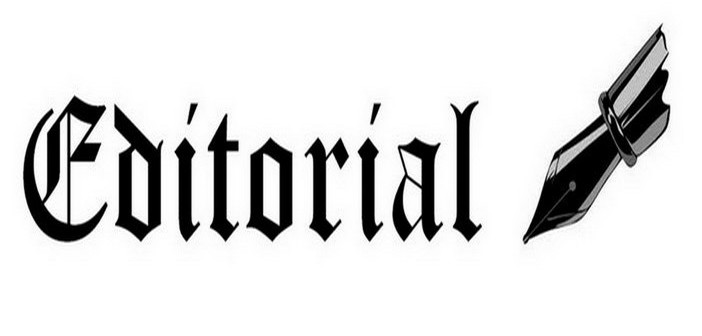Out on the street, the old regime comes back –either through the ballots or with boots…
The parallel between the Tunisian and the Egyptian revolutions has rightly been pointed out, for in a first period they have followed a similar path, motivated by nearly identical socio-economic velleities.
Probably, nearly five years later, the same parallel can be mentioned again, if one considers the involution of those two Arab springs. The disciplined Egyptian army had stamped out the revolution without much ado, with its studded, perfectly polished boots, whilst in Tunisia a rear-guard benalism has returned to power in the foggy unconsciousness of polling booths and thanks to the stunning inconsequence of the voters, re-establishing step-by-step a rampant autocracy and preparing to bring back to the country the sacrificed dictator’s old accomplices.
In Egypt it is obvious: the democratically elected president, who came from the ranks of the Muslim Brotherhood, has been overthrown by a junta of military officers and put into prison. Simultaneously, a judicial branch, following the orders of the new raïs, elected with scores worthy of Stalin, sentenced the former president to death, giving him the responsibility of massacres committed by others… those who now sit on the throne.
The unsuspicious populace is fed all day longby the media with lies, bigger than the royal yacht renovated on orders of the president on the occasion of the “Second Suez Canal” (which in itself is an absolutely prodigious lie). The population, 40% illiterate, applauds its new master with both hands, whilst hundreds of opposition members, kidnapped here and there, disappeared, “evaporated”, are tortured in the military prisons, or decompose slowly, filled with bullets, under a fine layer of sand.
What else is there to do than to entrust a body to the oblivion of the nearby desert, when it has been damaged so badly by torture that it cannot be given back to its family?
All opposition media are prohibited, the political movements hostile to the military coup are inscribed on a list of terrorist organisations, the right to demonstrate has been repealed… and the police has received orders not to file declarations of disappearances…
The raïs and the army, who have taken the executive power by force, exert real terror on the judicial branch, so that no Magistrate dares to derogate the verdicts, pre-established by the palace. As for the legislative branch… It is simply absent: the parliament has been dissolved and no longer exists, the army governs through decrees… Some might wonder if they dreamed those days in January 2011 and all the euphoria that was spread in those days on Tahrir square.
The return to the old regime is conducted with more subtlety in Tunisia, where since July people live under the state of urgency, decreed by the president, following the attacks of the Bardo museum and the beach in Sousse.
It is indeed more skilfully handled, given the degree of education of the Tunisian population – by far above that of the Egyptian one – and hence the power resorts to emotions.
Nidâ Tounes has taken the parliamentary way; a party constructed (metaphorically and literally) by an old fox of Bourguiba’s times (but also of Ben Ali’s period, a fact that the mainstreams have been very careful not to mention), but also an executioner back in the day, who is now the president, democratically elected. Béji Caïd Essebsi strives to re-establish the police-state on the one hand, and on the other to bring the good old friendsback home, the corrupt and corrupting, the Mafiosi and profiteers of the old regime, the acolytes and other sycophants of the dictatorship, nowadays exiled in Europe and in the United States.
On the one hand the new masters of Tunisia, that are barricaded behind their barbed wires and automatic machineguns, that now encircle the ministries of the Kasbah square in Tunis, have rebounded on the corpses of the tourists of Port El-Kantaoui, not hesitating to impose martial law.
On the other hand, this government slides a topic into their communications at any given opportunity: “national reconciliation”. It has become the leitmotiv of the moment, that the citizens need to know by heart and repeat until their brains are washed, but that resonates for some as an “insult to the martyrs of the revolution”.
“It is time to turn the page!”, howls and shouts the old hypocrite in the radio station, assassinating the heroes of the “Jasmin revolution” yet again.“And to give the chance to those businessmen to buy themselves back by giving Tunisia its prosperity back.”
“I do not see how it will contribute to the economy of our country if we absolve Mafiosi and crooks… If those thieves were useful to the development of Tunisia, we would not have kicked them out in the first place!”, comes a mumbled answer from Ali, a shoe polisher on Bourguiba Avenue: “But I won’t shout it out too loud… you never know: these days one needs to be careful again…”, he adds, as he zigzags through the barbed wire and the policemen that stand at every corner of the Avenue.
The law of “national reconciliation”, prepared with care and malice in the presidential office, does not really raise much debate though… As if the Tunisians, baffled by the Egyptian example and exhausted by the economic marasmus, have resigned to the fatality of their situation.
It is certainly paradoxical, but in the present situation only the Islamists of Ennahda have power in their hands, that could perhaps protect some of the relics of the revolution of 2011. The Islamists, maybe to provide an obstacle, have accepted to form a parliamentary coalition with Essebsi’s party (without fielding a candidate in the presidential elections, but nonetheless supporting the former president, Moncef Marzouki – who had then felt his wings growing, convinced of a return of popular affection).
Their loud support of the anti-terrorist law, voted in July with great haste, does not mean, effectively, that they will accept the return of the bastards…
Incha’Allah!



